There are no flawless teams in the NFL this year. I suppose you could say there are never any truly flawless teams, but 2016 is atypical. There was not a single team heading into Week 13 ranked in the top 10 in both offensive and defensive DVOA. There were four last year. Even the obvious favorites -- your Cowboys and Patriots of the world -- have holes on their rosters, caused either by injuries or other personnel choices.
Yet we know teams can overcome these sorts of problems. The Broncos were 25th in offensive DVOA and first in defensive DVOA last year and won the Super Bowl. You need a lot of things to go right for your weakness to either turn into a strength or somehow remain undetected or unexploited by an underwhelming opponent. It's impossible to predict who will be the luckiest between now and the Super Bowl, but somebody will.
With the playoffs no longer in the distance, let's look at some of those issues. Organizations can't do much to fix personnel problems now, unfortunately, but a well-timed benching or a run of good health from previously injured talent can mean the world. So let's run through the 15 teams with the best chance to make the postseason per ESPN's Football Power Index, and identify their biggest current weakness heading into the final stretch of the 2016 campaign.
The order: These are ranked based on the likelihood the key weakness might sink each team's playoff hopes. And that starts, coincidentally, with last year's champs ...
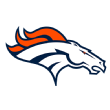
15. Denver Broncos
The Problem: quarterback health
Who would have thought we would find ourselves sitting here in December worrying about how an injury to Trevor Siemian might impact Denver's playoff hopes? And yet here we are, and those concerns are founded. First-round pick Paxton Lynch simply hasn't been very good this year; after looking competent filling in for an injured Siemian against Tampa Bay, Lynch has been dismal in his first two professional starts.
Facing the limited pass defenses of Atlanta (on Oct. 9) and Jacksonville (on Sunday), Lynch has gone 35-of-59 for 327 yards with a touchdown and a pick. His passer rating of 73.2 is bad, and his opponent-adjusted QBR is even worse. It's an absurdly low 14.5; the second-worst quarterback since Lynch's Week 5 start, Josh McCown, nearly doubled Lynch's rating at 27.3. For whatever physical traits he possesses, Lynch looks timid and ready to flee the pocket at any moment. The Jaguars locked him down in throwing situations on Sunday, as the Broncos failed to convert a single third down try after picking up one on a third-and-3 on the second possession of the game.
He's been pressured at the fourth-highest rate of any passer since Week 5 in those two starts, which doesn't help matters, but part of that is on Lynch. He's being pressured on 39.7 percent of his dropbacks despite opposing teams sending blitzes just 16.4 percent of the time. Siemian, meanwhile, is being pressured on 34.1 percent of his dropbacks, but it has required teams to send blitzes nearly twice as frequently (30.5 percent).
The good news for the Broncos is that they should get Siemian back from a foot injury soon, and they've been through this before. They won a Super Bowl last year with worse quarterback play than what they were getting out of Siemian, who looked impressive during the second half of their Week 12 shootout with the Chiefs. There are other issues here -- notably their run defense, which was 24th in DVOA heading into this week after finishing fourth last year -- but Lynch is likely to return to the bench for the remainder of the season soon enough.
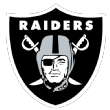
14. Oakland Raiders
The Problem: run defense
While the Raiders roared back on Sunday to solidify their position atop the AFC West with a 38-24 comeback victory over the Bills, the game put their biggest weakness into perspective. With starting defensive tackle Stacy McGee missing, Oakland was gashed by one of the league's best running games. Buffalo ran the ball 30 times for 212 yards on Sunday, producing their biggest play (a 54-yard scamper by LeSean McCoy) and all three of their touchdowns on the ground.
This isn't a new problem for the Raiders. While they've had issues at cornerback off and on this season, the run defense has never really been there. Dan Williams arrived from Arizona to be the focal point of their rush defense last season, but Williams lost his starting job in camp and had to fight to get it back during the season. Neither he nor Justin Ellis have been great on the interior. Oakland has also been trying to get by at middle linebacker after parting ways with vet Curtis Lofton and with Ben Heeney hitting injured reserve; Perry Riley and rookie sixth-rounder Cory James have alternated snaps and starts. There's no consistency, and even the guys you would expect to make plays against the run haven't, as we saw when Tyrod Taylor flew past a crashing Khalil Mack on a zone-read keeper for a score on Sunday.
This Bills game was a microcosm in another way: Notably, the Raiders were gashed on the ground and still won comfortably. Run defense is less important than ever, and for Oakland, it's even less of a concern by virtue of the AFC bracket. Who are they going to play in the playoffs who might be scary on the ground? There were four teams from the AFC among the top 10 of the DVOA rankings for rushing offense heading into Week 13, and three of them are likely to miss the playoffs: the aforementioned Bills, Jets and Dolphins. The fourth? The Raiders.
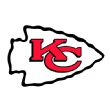
13. Kansas City Chiefs
The Problem: passing offense
Justin Houston already solved Kansas City's biggest problem through the first half of the season by providing a second pass-rusher alongside the emerging Dee Ford. Now, with Ford, Houston and Tamba Hali all available to rush the quarterback, the Chiefs' pass rush suddenly looks scary. It knocked Matt Ryan down nine times on 36 dropbacks Sunday, and Houston looks every bit his old, dominant self after returning from knee surgery.
Now, the Chiefs have to be concerned with throwing the football. They're never going to be a dynamic passing attack, but they need to be functional if only to take some of the pressure off their running game. They've been without Jeremy Maclin for several weeks, and Tyreek Hill has emerged as a wideout who can make big plays out of nothing on screens and jet sweeps, but the Chiefs are going to need more out of Alex Smith than they've gotten in recent weeks.
Smith's archetype is no secret. When he's on his game, Smith is concise and hyperfocused on avoiding turnovers, creating plenty of short completions and moving the ball with his feet. He hasn't been that guy recently. Smith has now turned the ball over in three of the last four games since returning from a concussion, including a crucial interception in the end zone against the Buccaneers in the team's only loss over that stretch. On Sunday, it was a strip sack by Vic Beasley on a play in which Smith held the ball too long under pressure on third-and-3.
The margin of error with Smith is generally razor-thin: You can't be as conservative as Smith typically is unless you avoid turnovers almost entirely. This should improve naturally (he hadn't turned the ball over in any of his three prior starts). Maclin will also help. The sample size with Smith is large enough to suggest that this is likely an aberration, and the Chiefs have been good enough to win three of these last four games, despite Smith's mistakes.

12. New York Giants
The Problem: rushing offense
There simply aren't any big plays lurking in the legs of New York's running backs, at least without Shane Vereen in the fold. The Giants aren't creating anything on the ground. Only three teams have failed to record a run longer than 25 yards this year: the Giants, Colts and Rams. Big Blue has just 19 gains of 10 yards or more on the ground, which ranks 30th in the league. On Sunday, they got one when Paul Perkins went for 18 yards in the third quarter.
Vereen is hardly a burner, but he should at least help the Giants as they try to find somebody who can make players miss in the open field and create extra yardage. The Giants also probably need to go into next season and address the right side of their offensive line, where veteran guard John Jerry and 2015 seventh-rounder Bobby Hart are starting. Giants runners are averaging just 2.04 yards per carry before contact so far this year, the fourth-worst rate in the league. Right now, their best hope is to end up against the weak run defenses of the Falcons and Lions in Round 1 and go from there.

11. Washington
The Problem: run defense
While Washington has been able to control the line of scrimmage on offense, the same has not been true on defense. Washington is lost on run defense this year. Heading into Sunday's game with the Cardinals, Washington ranked dead last in rush defense DVOA. Arizona curiously responded to this by throwing the ball 46 times, and Washington did hold the Cardinals to 3.7 yards per carry, but David Johnson produced 84 yards on his 18 rushes without ever cracking a run longer than 14 yards.
Quite simply, Washington doesn't do very much well against the run. It was 29th in the league against power situations and 32nd in allowing second-level yards, allowing teams to pick up steady chunks of yardage past the line of scrimmage. On first-and-10, Washington is allowing an average of 4.96 yards per carry, ahead of only the 49ers and Raiders. Those teams allow bigger plays, but in terms of steadiness, Washington is worse: It has allowed teams to pick up new first downs on 15.9 percent of those runs, the highest rate in football.
Washington was deeper along its defensive line last season, but let Terrance Knighton leave to start Kedric Golston at nose tackle. Golston made it two games before going on injured reserve. Knighton visited with Washington in October but did not re-sign with the team, and Washington has been starting the undersized Ziggy Hood at nose tackle with limited success.
The reason Washington comes in ahead of (i.e. worse off than) the Raiders on this list is scheduling. Washington's hope is to make it as a wild card, and even a win there would mean Washington is then in line for a Round 2 matchup against the Cowboys or the Seahawks, both of whom can run the football well. Dallas just ran the ball for 163 yards and three scores against Washington on Thanksgiving; Ezekiel Elliott and company would love another crack at their divisional rival and its soft underbelly in January.
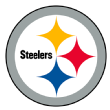
10. Pittsburgh Steelers
Problem: pass rush
While the Steelers basically have been forced to go with a youth movement in their secondary, their cornerbacks have mostly held up unless left on islands to cover for five or six seconds at a time. The bigger issue for Pittsburgh has been troubling opposing quarterbacks in the pocket. The Steelers just aren't getting after passers on defense. They're pressuring the opposition on just 25.5 percent of their dropbacks this season, ranking 24th in the league.
The team is still shockingly dependent upon 38-year-old outside linebacker James Harrison, who leads the team with a mere five sacks. The team leader in knockdowns is defensive end Stephon Tuitt, who has had to shoulder a larger role with star end Cameron Heyward out for the season. The Steelers' best hope is the returning Bud Dupree, who made his way back into the lineup in Week 12 and recorded a quarterback hit on Scott Tolzien. When we're marking progress by individual knockdowns, though, things look bleak.

9. Dallas Cowboys
Problem: pass rush
Second in a series! If you thought the Steelers had an ineffective pass rush, just wait until you see the Cowboys. Dallas is pestering opposing passers on just 20.7 percent of their dropbacks, the second-worst rate in the league. The Cowboys are almost entirely dependent upon blitzes to bother QBs; when they don't blitz, their pressure rate falls to 18.1 percent, also the second-worst rate in the league. Unfortunately for the Cowboys, they only blitz 18.8 percent of the time, which is the fourth-lowest rate in the league.
Dallas' secondary has been surprisingly effective this season, with Morris Claiborne in particular taking a leap forward after years of mediocrity before going down with a serious groin injury. You might argue that the Cowboys are unlucky to be without second-round pick Randy Gregory, who is suspended, with another suspension costing them fellow second-round end DeMarcus Lawrence for four games early on in the season.
It's also fair to say the Cowboys treat their defensive line the same way Seattle treats its offensive line under Tom Cable. The Cowboys are perennially trying to save money somewhere to afford stars at other positions, and with defensive coordinator Rod Marinelli, they have an excellent line coach with experience in turning other people's trash into treasure.
The metal detector hasn't really gone off this year, unfortunately. Tyrone Crawford leads the team with 3.5 sacks, and Benson Mayowa has been the best edge rusher, with three sacks and five knockdowns in eight games. Lawrence has a knockdown in five of his six games this season, but the Boise State product has just one sack. So many things have gone right for the Cowboys, but their pass rush has been stagnant during this wildly impressive season. Lawrence is probably their best candidate to make some noise.
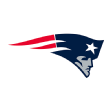
8. New England Patriots
Problem: pass rush
Hey, see a trend developing? The Patriots have a problem getting after the quarterback as well, and it's the biggest reason why their defense ranked 28th against the pass before comfortably handling the Rams and rookie quarterback Jared Goff on Sunday. Goff's two interceptions were both unlucky, but the second one came when Goff was hit on the arm in the middle of his throwing motion by Jabaal Sheard. Sheard recorded one of New England's nine quarterback knockdowns on the day, an impressive number for a defense that had recorded a total of just 48 hits across its 11 previous outings.
To some extent, the Patriots had been unlucky. They were getting pressure on opposing quarterbacks, but it wasn't turning into sacks. Before Sunday, the Patriots were 12th in the league in pressure rate, but 24th in sack rate. When they did get pressure, they turned just 17.3 percent of those opportunities into sacks, which ranked 29th in the league. Against the Rams, that number jumped to 26.7 percent, fifth in the league for Week 13.
Their luck should improve, and while they will likely look back and wish they still had Chandler Jones for this season, they should at least be deep enough with pass-rushers to roll out fresh defenders into January. Sheard, who was a healthy scratch against the 49ers in Week 11, had the aforementioned hit and three pass deflections this time out. Kyle Van Noy, acquired from the Lions, had a sack in Week 11 and has stood out as a rusher. Chris Long had a sack and three knockdowns in his revenge game against the Rams. There's still not a lot of production here, but there are names and bodies, which means hope.
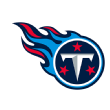
7. Tennessee Titans
Problem: left cornerback
The worst is probably over for the Titans, who were struggling for weeks with sub-replacement-level performance from 2015 free-agent addition Perrish Cox, who was being torched for big plays seemingly once per drive. The situation quickly became untenable, and the Titans were likely right to waive Cox after a brutal performance against the Bears in Week 12. He appeared to be getting worse, and while there may have been an injury in play, the Titans were likely going to cut their embattled corner after the season, so there was little point in pushing him to injured reserve.
The problem: No promising option is lurking behind Cox on the bench. The Titans inserted rookie fifth-rounder LeShaun Sims into the lineup for Cox at times against the Bears and promoted 2016 Mr. Irrelevant, Kalan Reed, off the practice squad when they cut the veteran disappointment, but it's likely going to be Valentino Blake playing on the outside with Brice McCain remaining in the slot. That's just a recipe for the league's better passing attacks finding and exploiting a weak spot in the lineup play after play; the Patriots and Raiders should be able to pick Blake apart, even if he's an upgrade over Cox.
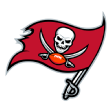
6. Tampa Bay Buccaneers
Problem: field goal kicking
Field goal kicking was a genuine problem for the Buccaneers in 2015, when Kyle Brindza cost the Bucs dearly before giving way to the veteran mediocrity of Connor Barth. The Bucs' kickers cost them 17.5 points of field position last year, the worst figure in the league. The Bucs overreacted to their problem in the way that one would decide to replace a spent light bulb by tearing down the entire kitchen. They traded up in the second round to grab Florida State star Roberto Aguayo, who was supposed to put their minds at ease.
Well, that hasn't happened. Aguayo has missed two extra points and seven field goals in 12 games, going 15-of-22 despite attempting (and missing) just one field goal from beyond 50 yards. Heading into Week 13, he had cost the Buccaneers 10.8 points of field position with his kicks, the worst rate in the league. That's a number which won't rise after he pulled a 31-yarder wide right against the Chargers on Sunday.
It's too early to judge Aguayo, but let's not pretend the Buccaneers are treating Aguayo like just another kicker here. If he had been drafted in the seventh round or signed off the waiver wire and performed exactly the same, the Buccaneers would have cut him weeks ago and picked a veteran option off the scrap heap. They haven't done that, of course, because they invested what amounted to a high-second-round pick in Aguayo after accounting for the trade up. Aguayo may eventually prove to be a solid kicker, but the Bucs will be sweating every single time he lines up over the next two months. They bought peace of mind and came away with more anxiety.
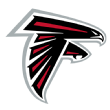
5. Atlanta Falcons
Problem: cornerbacks
Just as the Falcons finally found a pass rush in the form of Vic Beasley, injuries sapped the rest of their pass defense. Adrian Clayborn, the team's poor man's Michael Bennett, is out for several weeks (if not longer) with a torn meniscus. More distressingly, star cornerback Desmond Trufant tore a pectoral muscle in a Thursday night game against the Buccaneers and is done for the season, a crippling blow for a team which relied on Trufant at times to either shut down a side of the field or follow a No. 1 wideout around the formation.
There isn't much behind him. 2015 second-rounder Jalen Collins has the size Dan Quinn wants, but he showed little as a rookie before being suspended to start the 2016 season. Robert Alford hasn't adapted well to Quinn's scheme and is the weakest cornerback of Atlanta's trio, and is being outplayed by undrafted rookie Brian Poole. The Falcons are another injury away from looking at meaningful snaps for Blidi Wreh-Wilson, and that's too close for anybody's comfort.
The good news: The rest of their schedule isn't exactly filled with great passing attacks. The Falcons have the Rams, 49ers and Panthers on the docket over the next three weeks. The Saints are obviously a concern if Week 17 is a meaningful contest, though, and it's scary to think about the Falcons without Trufant against Washington, Green Bay or Dallas in January. Their best solution is just to keep the pass rush going and hope that it can mask the question marks behind it at corner.
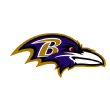
4. Baltimore Ravens
Problem: offense
Yeah, it seems like a broad problem, and it's weird to say after they nearly dropped 500 yards of offense on what was supposed to be a playoff contender in the Dolphins on Sunday, but the Ravens have been unable to form a coherent offensive identity all season. They were 30th in offensive DVOA heading into the Dolphins game, with mediocre raw results against what had been the league's easiest schedule of opposing defenses.
There's been nothing for the Ravens to hang their hat on: Their offensive identity has been throwing checkdowns into the flat on third-and-long. This is a team that would probably like to throw the ball downfield, given the presence of Mike Wallace, Breshad Perriman and Joe Flacco, but the offensive line hasn't been good enough in pass protection to hold up for those deep throws. Terrance West looked promising, running the ball 88 times for 414 yards (4.7 yards per carry) in his first six games, only to tote the rock 75 times for a mere 236 yards in the ensuing six contests, an average of 3.2 yards per attempt. They Ravens have managed to be conservative and turn the ball over 17 times in 12 games.
The toughest stretch of their schedule is coming up, with the Patriots, Eagles and Steelers on the other side of the field, and it will make or break Baltimore's season. If the Dolphins game exhibited a new level of performance for the Ravens, they could be hitting their offensive stride at the right time. More likely, given how poor they've been on offense for most of the season, Sunday was an aberration.
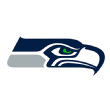
3. Seattle Seahawks
Problem: free safety
This problem was going to be offensive line until Sunday night, when future Hall of Famer Earl Thomas broke his leg in a blowout victory over the Panthers. Pete Carroll suggested that Thomas could return in six weeks, which would get him back during the playoffs, but even that seems like a remarkably optimistic timeline.
There's no replacing Seattle's star safety. There likely isn't anybody in the league who could step in and do what Thomas does as the center fielder in Seattle's Cover 3. The Seahawks don't always play Cover 3, but it's at the heart of what they do, and nobody covers a wider range or takes away as many possible routes over the middle as Thomas does. Some teams can't do with two deep safeties what Seattle can do with one. He's irreplaceable in a way that nobody else on Seattle's roster, short of Russell Wilson, would be.
The good news is there's so much incredible talent on this defense that it might be able to get by without Thomas. Their ceiling is lower now, of course, but the Seahawks just got Michael Bennett back, and the best way to cover for a hole in the secondary is with a great pass rush. Carroll is also one of the greatest defensive backs coaches in NFL history, so if anybody can coach up Steven Terrell into a serviceable safety overnight, it's him.
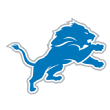
2. Detroit Lions
Problem: entire pass defense
It would be virtually unprecedented for a team with a pass defense as bad as Detroit's to make a deep run in the playoffs, especially in the modern, pass-happy NFL. The Lions were 31st in defensive DVOA and dead last in pass defense heading into Week 13, with their struggles only masked by facing the league's easiest slate of offensive attacks. If you're a Lions fan who wants to argue against their problems, you are probably going to bring up their four-game winning streak, in which the Lions have allowed an average of just over 15 points per game. That's good. It also included two games against the misfiring Vikings and one against the Jaguars' broken passing attack. The one game nobody can argue with came on Sunday, when the Lions held the high-powered Saints to just 13 points while picking off Drew Brees three times. That will be enough to push the Lions off the bottom of the DVOA table, although it might only be past the Browns into 31st.
The disconcerting issue comes with Detroit's pass rush. Remember when I mentioned the Cowboys own the league's second-worst pressure rate? The Lions are the ones below them. When the Lions don't blitz, they've managed to bother opposing quarterbacks a mere 13.8 percent of the time. Dallas, in 31st place, is at 18.1 percent, almost as close to league average (23.7 percent) as they are to Detroit. The Lions sacked Brees only once on Sunday, and while he missed time with a high ankle sprain and has been unlucky given his 12 quarterback knockdowns, Ezekiel Ansah still doesn't have a sack in 2016. Kerry Hyder has been the team's only noticeable pass-rusher, and after recording five sacks in his first four games, he has just two sacks since.
The Lions should have two more weeks before they have to buckle down, given that they play the Bears and the struggling Giants offense before what might be a division-deciding game against the Packers. They'll likely be facing a Cowboys team with nothing to play for in Week 16 before heading to the postseason, but their defense simply hasn't been very good. The Saints game could be a new baseline of success. Maybe Ansah goes on a tear, or the team gets better once DeAndre Levy returns from his quad injury. Most likely, though, the Lions will be sending one of the league's worst defenses to the postseason. It's hard to imagine that ending well.
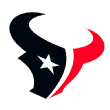
1. Houston Texans
Problem: quarterback
The most difficult problem to overcome, of course, is having a replacement-level quarterback. Brock Osweiler's numbers were inflated by a garbage-time drive in the snow, and he didn't throw any interceptions, but he was playing a very beatable pass defense in Green Bay on Sunday and couldn't even average 6 yards per attempt.
Backup Tom Savage was unavailable in Green Bay while suffering from an infection in his elbow, but even if he's healthy, Savage isn't going to be a significant upgrade. Osweiler's the guy in Houston until 2018, and he's just not playing at a championship-caliber level. If you point to Osweiler's last team as a good example of a club that won the Super Bowl with ugly play at quarterback, remember that those Broncos had the league's best defense and great special teams and went three games while throwing just one interception.
You have to do just about everything else at an elite level to win with a quarterback that bad, and the Texans aren't a team of that caliber. They were 14th in defensive DVOA heading into Sunday's game against the Packers and 31st on special teams, and would need Osweiler to swear off interceptions like a New Year's resolution for four postseason games to win a Super Bowl. The Texans' chances of making it to the postseason are down to 47.3 percent, but even if they do make it, it's more likely they get knocked out at home in the first round by the second-place team in the AFC West than advance very far given what they're getting from the game's most important position.
